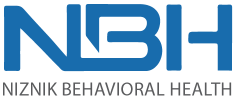Medically-Assisted Detox Options
The demand for safe and comfortable medically-assisted detox and recovery treatment is growing exponentially as the United States continues to struggle with the epidemic of substance abuse. Overdose has reduced the national life expectancy due to a 21 percent spike in drug-related fatalities, making substance abuse and addiction a major public health and safety crisis.
Combating the nationwide drug and alcohol abuse problem requires access to addiction recovery services, beginning with safe and reputable medically-assisted detox programs. The inherent distrust society holds when it comes to detox facilities and recovery in general stems from misinformation and dishonest business practices from fraudulent companies. Unraveling these misconceptions and increasing awareness of treatment options is the first step in ending the addiction epidemic.
Understanding treatment options available for overcoming physical dependency and beginning your recovery journey allows you to make the best decision possible for you and your future. Beginning with understanding medically-assisted detox with Suboxone and other treatment options.
Suboxone for Medically-Assisted Detox
Suboxone, an opioid commonly utilized during medical detox, is categorized as a class III controlled narcotic. It is potentially addictive, especially to people with a prior history of drug and alcohol abuse. Because of these risks, Suboxone tapers are intended for short-term use only- typically for less than two weeks. Though it is safe when used as directed and under proper supervision, misuse of Suboxone can lead to dangerous, life-threatening health complications including:
- Nausea
- Difficulty sleeping/ insomnia
- Hypertension
- Sweating
- Dizziness/ fainting
- Difficulty breathing
- Blurred vision
- Lack of coordination
- Slowed heart rate
- Fatal overdose
Close medical supervision by recovery experts within a safe and secure Suboxone detox facility, medically-assisted detox with Suboxone helps combat the negative side effects of drug and alcohol withdrawal such as physical pain and discomfort. By removing these factors which often cause hesitation in beginning the recovery process, Suboxone allows you to focus instead on the mental and emotional aspects of transforming your life.
Methadone for Medically-Assisted Detox
Methadone detox is primarily utilized to address opioid addiction, especially in cases of heroin, Fentanyl, or prescription drug abuse. As a long-lasting, slow release substitute for more illicit drugs, methadone detox programs involve a gradual tapering to reduce or eliminate withdrawal symptoms. Due to the long-term nature of methadone treatment, many falsely view it as ‘trading one addiction for another.’ While this is not true, methadone does also carry a risk for dependency if misused or abused.
As a synthetic opioid, suddenly discontinuing use of methadone can cause severe withdrawal symptoms such as:
- Abdominal pain and cramping
- Diarrhea
- Nausea and vomiting
- Insomnia
- Increased body temperature and excessive sweating
- Increased heart rate and hypertension
- Depression
- Anxiety
While opioid withdrawal is rarely lethal, complications can arise due to previously existing medical conditions. Because of these and other risks, it is important to follow a personalized methadone detox program under the supervision of recovery professionals.
Naloxone for Medically-Assisted Detox
Though Naloxone has gained a lot of attention recently for its ability to counter opioid overdose symptoms, it can also be used as part of a regimen with Suboxone and/or Methadone to help guard against the development of new addictions. Naloxone acts as an inhibitor it blocks the desired effects of opioid abuse, discouraging ongoing substance use and allowing one to focus on other facets of the healing process.
Naloxone, when used in conjunction with Suboxone or Methadone, provides the pain relieving benefits of opioid medications while protecting against negative side effects including addiction and overdose. However improper use of Naloxone may still pose serious side effects, including:
- Chest pains
- Irregular heart rate
- Difficulty breathing
- Sweating
- Nausea and vomiting
- Severe headache
- Anxiety
- Lightheadedness
- Seizures
Before committing to any form of detox program, do thorough research and consult a healthcare professional concerning your options. Do not attempt to detox on your own, as withdrawal symptoms can be severe and life threatening. Beyond the health risks, attempting to detox “cold turkey” may lead to a danger relapse, as addiction recovery goes beyond detox.
For more information about medically-assisted detox options, and assistance finding a quality medical detox center, call Niznik Behavioral Health today.

